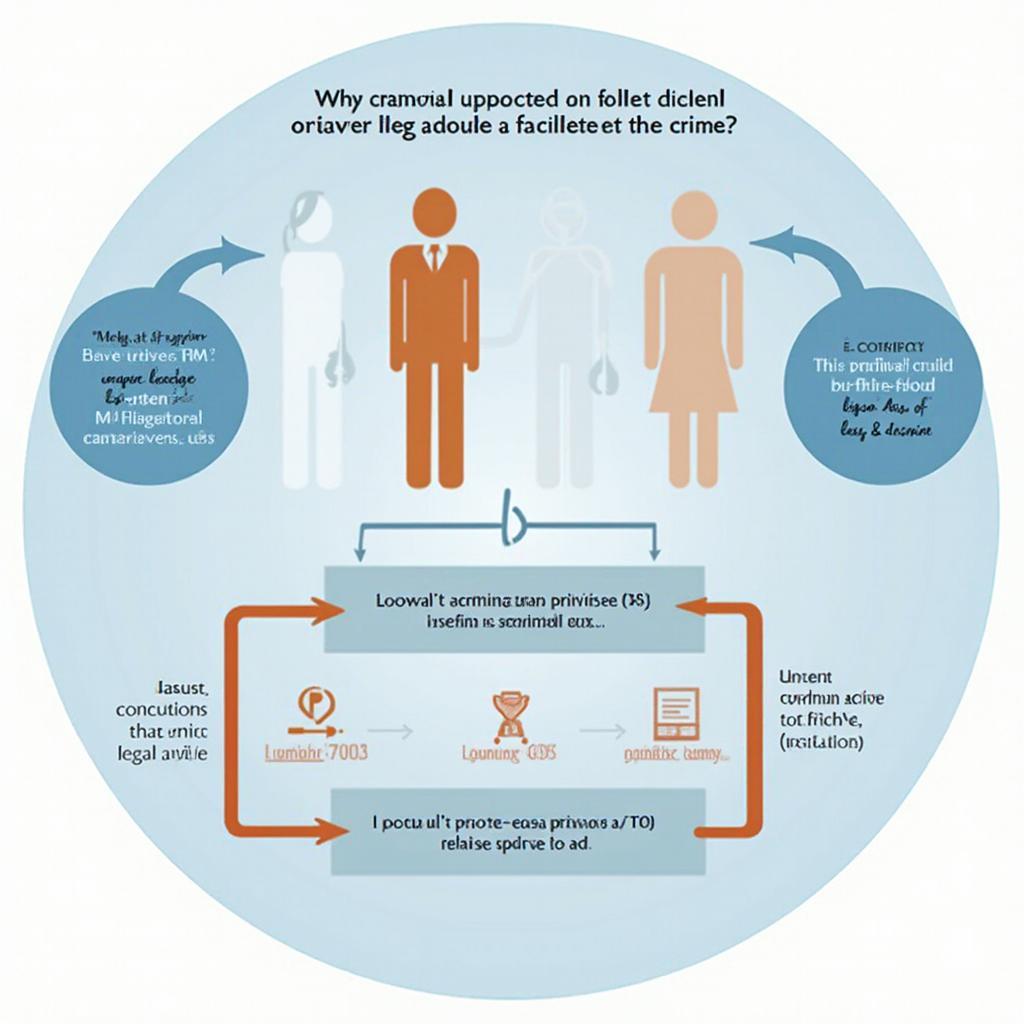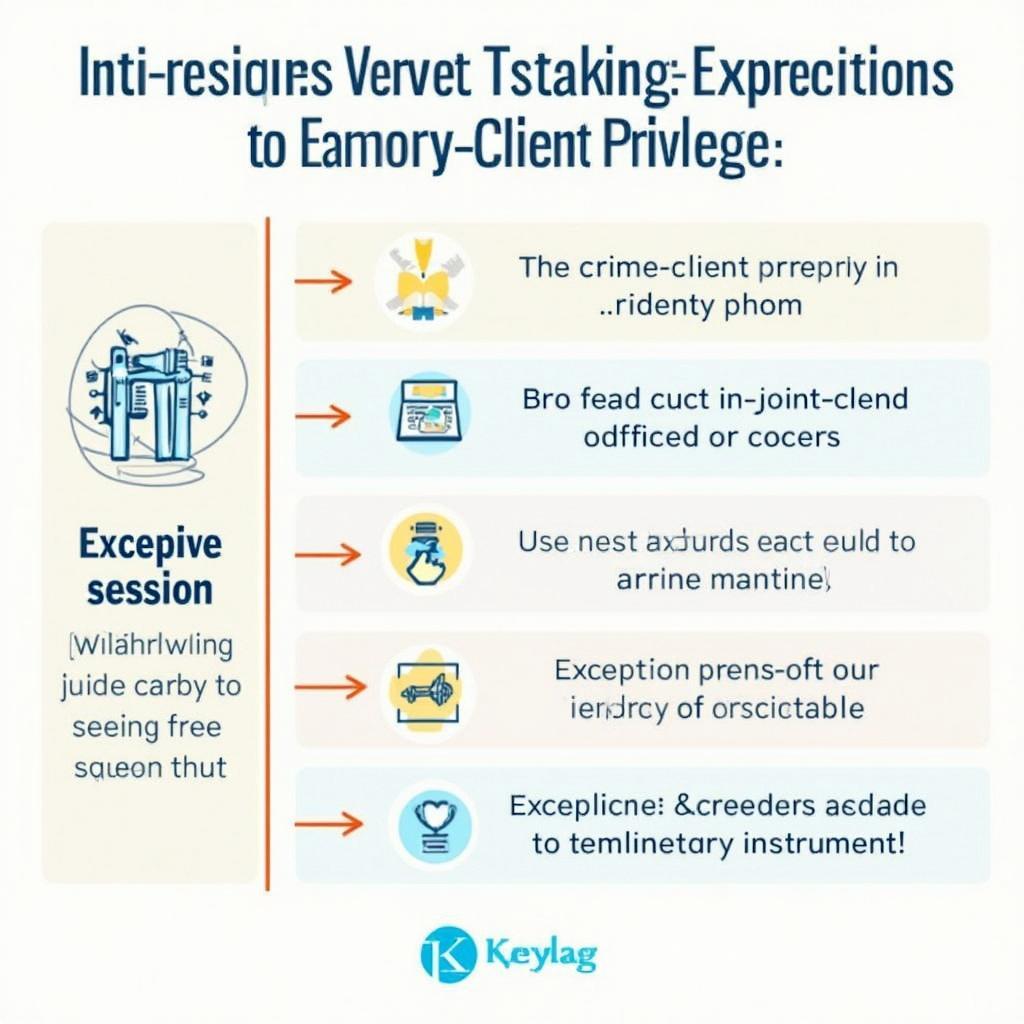
Attorney Client Privilege Exceptions in Crimes
Attorney-client privilege is a cornerstone of the legal system, ensuring open communication between clients and their legal counsel. It protects confidential communications made for the purpose of seeking legal advice. However, this privilege is not absolute. There are certain attorney client privilege exceptions in crimes, where the need for information outweighs the need for confidentiality. Understanding these exceptions is crucial for both attorneys and their clients.
Similar to morgan morgan attorney firm, understanding the nuances of attorney-client privilege can be complex. One of the most critical areas to understand is when this privilege doesn’t apply, specifically in the context of criminal activity. This article will explore the key exceptions to attorney-client privilege in criminal cases.
When Does Attorney Client Privilege Not Apply in Criminal Cases?
Attorney-client privilege is designed to foster trust and allow clients to be completely honest with their attorneys. However, this protection is not a shield for criminal activity. Several key exceptions exist where the privilege is waived or doesn’t apply.
The Crime-Fraud Exception
Perhaps the most well-known exception is the crime-fraud exception. This exception applies when a client seeks legal advice to further a crime or fraud. The communication itself doesn’t need to be criminal, but the client’s intent in seeking the advice must be to facilitate criminal activity. This exception also covers situations where the client uses the lawyer’s services to commit a crime or fraud.
-
Intent is Key: The crucial element here is the client’s intent. If the client genuinely seeks legal advice to understand the legality of their actions, the privilege likely applies. However, if the client intends to use the attorney’s advice to commit a crime, the privilege may be waived.
-
Past vs. Future Crimes: The crime-fraud exception generally applies to future crimes or ongoing criminal activity. It doesn’t typically apply to past crimes, unless the client continues to conceal the crime.
 Crime-Fraud Exception Diagram
Crime-Fraud Exception Diagram
The Breach of Duty Exception
Another important exception is the breach of duty exception. This applies when the communication between attorney and client relates to a breach of duty by either the attorney or the client to each other. For instance, if the client fails to pay agreed-upon fees, or the attorney commits malpractice.
- Disputes and Litigation: This exception often comes into play in disputes between attorneys and their clients, such as fee disputes or malpractice lawsuits. In these cases, relevant communications may be admissible as evidence.
The Joint Client Exception
When two or more clients hire the same attorney for a common legal purpose, they are considered joint clients. The attorney-client privilege protects their communications with the attorney. However, if a dispute arises later between these joint clients, the privilege no longer applies to communications relevant to the dispute.
- Common Interest: It is important to note that the joint client exception only applies to communications made while the clients shared a common legal interest.
Just as with what questions to ask divorce attorney, understanding the exceptions to attorney-client privilege is critical. These exceptions can significantly impact the outcome of a criminal case.
Exceptions Related to Testamentary Instruments
Attorney client privilege may also be waived in cases involving wills or other testamentary instruments. If there is a dispute over the validity of a will, communications between the deceased client and the attorney who drafted the will may be admissible as evidence.
- Will Contests: This exception is most commonly invoked in will contests, where beneficiaries challenge the validity of a will due to undue influence, lack of capacity, or other grounds.
Further Clarifications on Attorney Client Privilege Exceptions
What about situations where the client threatens to commit a crime? This is a complex area. While the attorney has a duty of confidentiality, they also have a duty to prevent harm. If the threat is imminent and credible, the attorney may have a duty to disclose the information to prevent the crime.
 Attorney Client Privilege Exceptions Chart
Attorney Client Privilege Exceptions Chart
Similar to determining is a tax attorney worth it, understanding the limitations of attorney-client privilege is crucial for informed decision-making. It’s always advisable to consult with an attorney to understand the specific application of these exceptions in your case.
Conclusion
Attorney client privilege is a vital principle in the legal system, but it is not absolute. The exceptions outlined above demonstrate that the need for truth and justice can sometimes outweigh the need for confidentiality. Understanding these attorney client privilege exceptions in crimes is crucial for both clients and attorneys. Consulting with an experienced attorney is essential to navigate these complex issues and ensure your rights are protected. Just as one would seek an attorney for discrimination at work near me, finding the right legal counsel for your specific needs is imperative. Understanding the nuances of attorney-client privilege is paramount in any legal situation. This knowledge empowers clients to communicate effectively with their attorneys and make informed decisions about their legal representation, much like understanding the intricacies when considering a will attorney las vegas.




